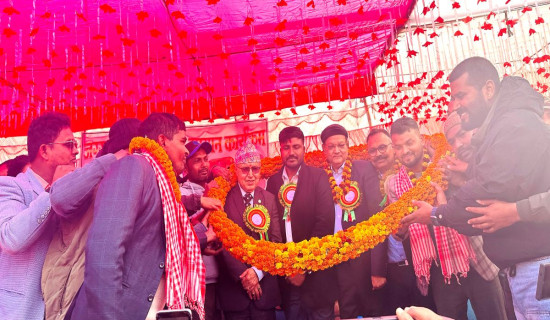- Thursday, 25 December 2025
Review Reservation
Bini Dahal
Bangladeshi Prime Minister Sheikh Hasina Wazed recently resigned and fled the country. This incident highlights the people’s ability to fight back against any kind of tyrannical rule. Having said that, it is more than important to understand how the country has happened to reel from such an adverse situation. The country’s quota system is considered as the key issue behind such a drastic political upheaval. Initially, a 30 per cent quota had been provided in government jobs to the descendants of freedom fighters of the 1971 Pakistan-Bangladesh war.
That provision had caused agitation and irritation among the youths. In the beginning, the student-led protest was more or less peaceful. But the agitation turned violent due to the government’s harsh response to the rebels. Around 440 people have lost their lives in the month-long agitation. Just a few days back, the Supreme Court had brought about changes to the quota system, allocating 97 per cent for merit-based and only 3 per cent to the people belonging to disabilities and other groups.
The quota system is regarded as essential, especially in most South Asian countries like ours. In Nepal, the reservation system in civil service was introduced to address the historic marginalisation of backward communities. Such marginalisation was one of the factors behind the decade-long Maoist insurgency. However, it is easier said than done when it comes to mainstreaming the underprivileged sections of society. Even today, we keep on discoursing about how even political party leaders are ignorant of such matters and how violence and acts against the marginalised communities have not come to a halt.
Amidst such a situation, the quota system has been provisioned as a positive step from the side of the government. As per this provision, 33 per cent of total seats are set aside for women, 27 per cent for candidates from indigenous nationalities, 22 per cent for Madhesis, 9 per cent for Dalits, 5 per cent for the people living with disabilities and the remaining 4 per cent for those from geographically backward regions. Thanks to this quota system, a lot of people, especially women have found a footing within the civil service. Currently, women account for about 28 per cent in the civil service.
However, there is a shortcoming of this quota system. There are creamy and non-creamy layers even within the backward communities. The creamy layer refers to such members of backward communities who are both socially and economically advanced. Despite this, there are still certain sections of the society that require upliftment in the true sense. As long as such matters are not recognised well by the State, reservation may not benefit anyone. And most importantly, such incidence can further create agitation and annoyance among the general public, causing a disruption to the peace and stability in the society. No doubt, the quota system should be considered a good short-term solution to the problem of social and economic inequalities. Once social exclusion ceases to happen, our civil service must promote meritocracy over reservation.
Therefore, it is quintessential for us to contemplate on this to achieve social justice. We will have to come up with development programmes concerning education and health to uplift such community members. And most importantly, we will have to make use of the quota system as a tool to ensure that more and more backward and minor populations are brought to the mainstream. This means the quota system should be on the basis of economic capabilities of the people to target it better. Once social inclusion is ensured, our focus should be on meritocracy.
















